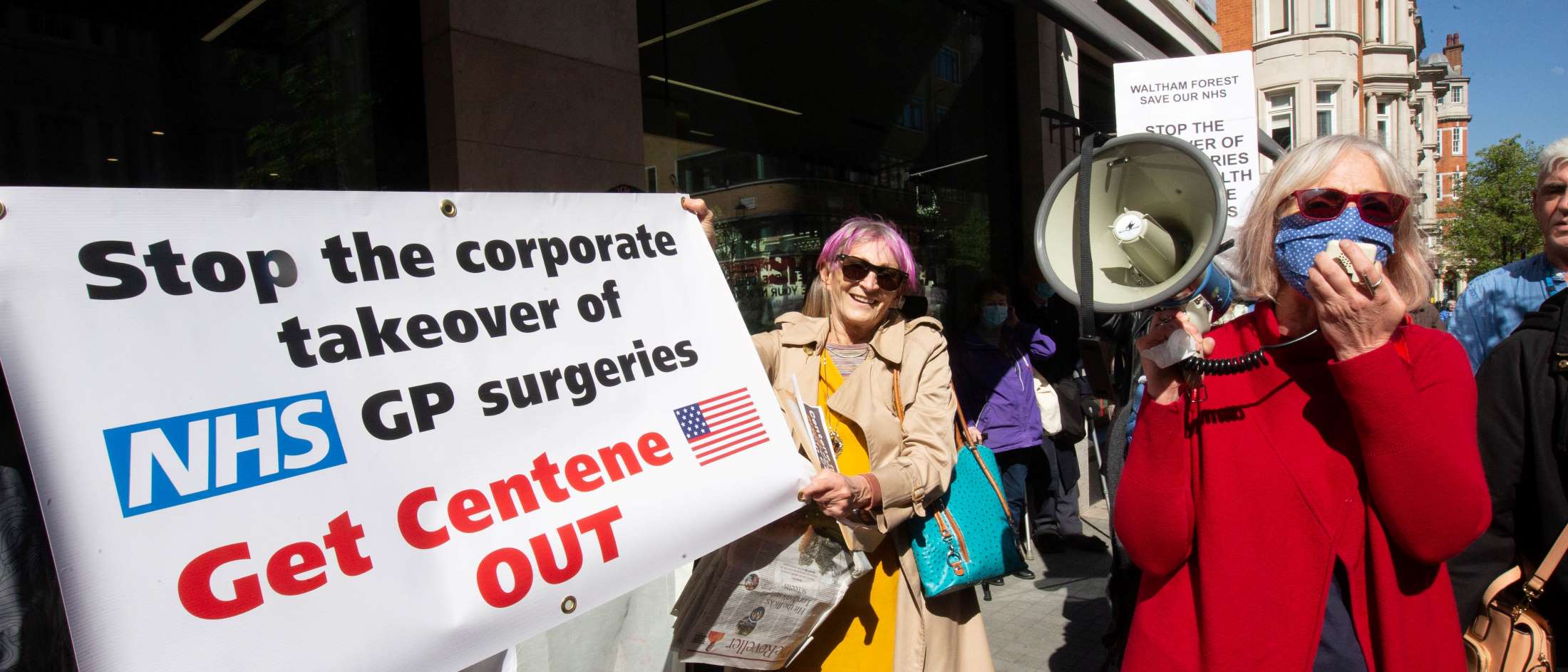NHS â€at breaking point’
NHS bosses warned on Tuesday (October 7) that funding for the health service is at a breaking point, which could mean the unthinkable—paying for once free services, including up to £75-a-night for a hospital bed.
Rob Webster, chief executive of the NHS Confederation, ominously warned of “unpalatable” choices the NHS would have to make if funding did not increase dramatically, including ever longer wait times, raised thresholds for the treatment of minor conditions and paying “hotel” costs to stay the night at the hospital.
National officer for Unite health sector Barrie Brown bristles at the notion of paying for any NHS service.
“This â€bed-and-breakfast’ proposal is outrageous and runs completely contrary to the fundamental principles of the NHS,” Brown said, criticising the NHS Confederation for its approach in discussing the funding crisis.
“Any discussion of charging patients will then be a discussion of who can afford it,” he added. “We cannot stray from the founding notion of the health service being free at the point of contact.”
The health service’s deficit, experts warn, will amount to £30bn in the next few years. Webster noted that the election promises that all three political parties have made to ring-fence or increase NHS spending are not enough. The NHS Confederation has called for a £2bn per year “transformation fund” to maintain current levels of service.
Webster emphasised that the NHS’ ills can be fixed if there is sufficient political will to maintain the health service through adequate government funding.
“Overall funding allocation for health and social care is a political choice,” he said. “Flat funding in real terms is a choice. Funding that doesn’t match increases in demand is a choice. One-off â€lumps’ of money, which get newspaper headlines but don’t allow health service leaders to plan effectively, are a choice.”
Brown agrees that the health service is severely underfunded. “We absolutely have to have a serious discussion about how we’re going to fund the NHS,” he said.
Private firms funnelling NHS funds
Many undoubtedly will call for more private money to fill the health service’s funding gap, but as Unite research has shown, it is profit-hungry private schemes that are destroying the NHS as we know it. Since the introduction of the coalition’s pro-privatisation Health and Social Care Act came into effect in April 2013, 70 per cent of NHS contracts have been awarded to the private sector.
Disastrous private finance initiatives (PFIs) have wasted billions of NHS funds since their adoption. The agreements, which have been used to fund the building of hospitals, are long-term contracts between the public and private sector which last 30 to 60 years.
A hospital costs only about ÂŁ12bn in original capital expenditure to build. The lifetime cost for a PFI hospital, however, which effectively becomes a taxpayer hand out to private companies, is roughly ÂŁ80bn. If the government directly borrowed the money with a 2.5 per cent bond issue over 30 years, the total cost would be only ÂŁ17.2bn, and a mortgage from a high street bank would amount to just ÂŁ23bn.
Brown explains how massively indebted PFI hospitals have a ripple effect even on hospitals which haven’t used the agreements.
“Lewisham A&E was threatened with closure not because it was a PFI hospital, but because all other hospitals around it were massively indebted under the agreements,” he said. “You’re then in a situation where a public service becomes collateral damage.”
Unite research has also recently revealed the extent to which Tory politicians have a vested interest in selling off the NHS. Since 2012, ÂŁ1.5bn of NHS funding has lined the pockets of 15 private firms linked to 24 Tory MPs and Lords who supported the health and social care act.
These same Tories have called for billions in NHS “efficiency savings,” justifying unprecedented cuts to staff pay and conditions and patient services, while at the same time lining the pockets of their friends in high places.
“David Cameron promised there would be no top-down reorganisation of the NHS, but he lied,” said Unite general secretary Len McCluskey. “How can we be in a situation where dozens of his MPs, voted for the sell off and had links to private healthcare companies, knowing this would open up new opportunities for the companies that pay them?”
McCluskey added that Cameron’s pro-privatising history with the NHS meant he couldn’t be trusted to solve the health service’s funding crisis. “The next election will be make or break for our NHS,” he said.
For more information on PFI and how these agreements are destroying the NHS, check out the Unite-supported People vs. PFI conference on November 1 in London.
 Like
Like Follow
Follow


